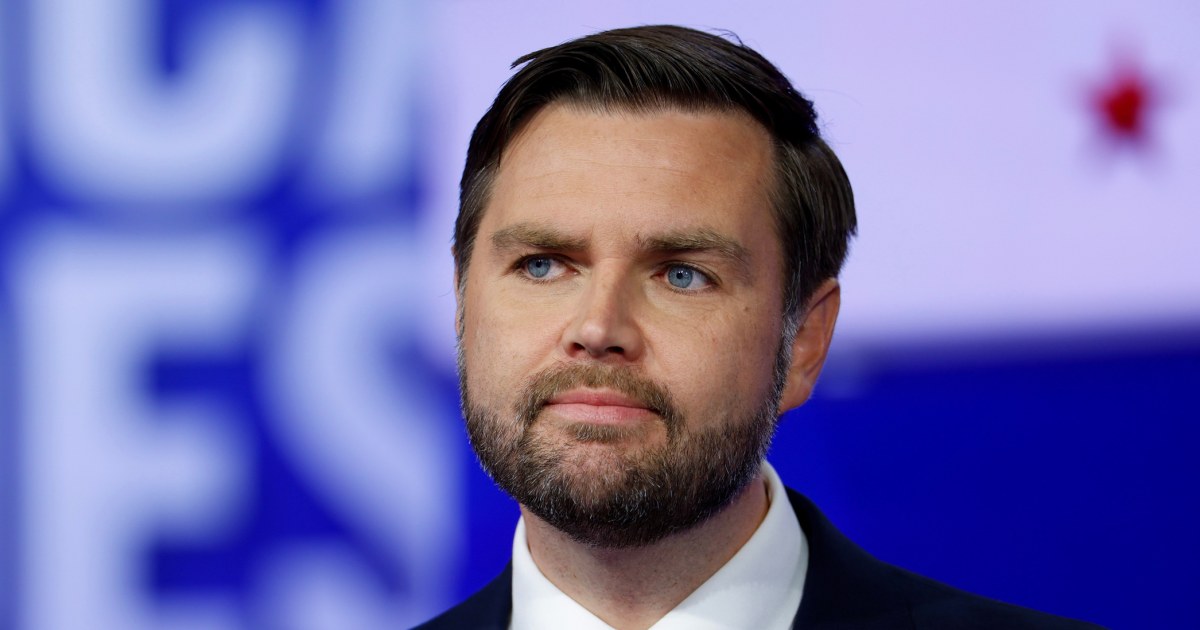JD Vance’s Controversial Stance: Should January 6 Rioters Be Pardoned?
In the wake of the January 6 insurrection, a significant debate has emerged regarding accountability for those involved in the attack on the U.S. Capitol. Among the voices in this discussion is JD Vance, a prominent political figure and author, who has recently articulated a controversial stance against the idea of pardoning the rioters. This position invites a closer examination of the implications of such actions on justice, accountability, and the broader political landscape.
The Context of January 6
The events of January 6, 2021, marked a pivotal moment in American history. On that day, a mob of supporters of then-President Donald Trump stormed the Capitol as Congress was in the process of certifying the electoral college results of the 2020 presidential election. The insurrection led to widespread chaos, violence, and the tragic loss of life. As a result, many individuals were arrested and charged with various crimes ranging from trespassing to assaulting law enforcement officers.
In the aftermath, the question of whether these individuals should face the consequences of their actions has sparked intense debate. Some argue that pardoning the rioters could undermine the rule of law and send a dangerous message about accountability in the face of political violence.
JD Vance’s Position
JD Vance, who rose to prominence with his memoir “Hillbilly Elegy,” has been vocal about his views regarding the January 6 rioters. Contrary to the sentiments expressed by some of his Republican peers who favor pardoning the rioters, Vance has taken a firm stance against such measures. He has argued that granting pardons would not only diminish the severity of the actions taken on that day but also encourage future political violence.
Vance’s position is rooted in a belief in personal accountability. He contends that those who participated in the insurrection must face the consequences of their actions to uphold the integrity of the justice system. In his view, a failure to hold these individuals accountable would set a dangerous precedent, potentially emboldening others to engage in similar acts of violence in the future.
The Implications of Pardoning January 6 Rioters
The discussion surrounding pardoning the January 6 rioters raises several crucial questions about justice and accountability. Here are some key implications to consider:
- Rule of Law: Pardoning individuals who participated in an attack on the Capitol could be perceived as a rejection of the rule of law, suggesting that certain individuals are above accountability.
- Precedent for Future Actions: Granting pardons might set a dangerous precedent, potentially encouraging similar behavior in the future. If individuals believe they can evade justice for violent actions, it could lead to further unrest.
- Impact on Victims: The insurrection had real victims, including law enforcement officers and those who were present in the Capitol at the time. Pardoning the rioters could be seen as a disregard for their suffering and the trauma caused by the events of that day.
- Political Polarization: The issue of pardoning the rioters is deeply polarizing and can exacerbate existing divisions within the country. Those in favor of pardons may see themselves as defenders of freedom, while opponents may view them as undermining democracy.
Counterarguments and Alternative Perspectives
While JD Vance’s stance against pardoning the January 6 rioters is clear, there are alternative perspectives worth considering. Some advocates for pardoning suggest that:
- Political Motivations: They argue that many of those involved in the riot were driven by a genuine belief that the election was fraudulent and felt compelled to act. They may view pardoning as a way to heal the political divide.
- Restorative Justice: Some proponents of pardoning advocate for restorative justice principles, believing that forgiveness and understanding could lead to a more united society.
- Focus on Larger Issues: Others argue that the focus should shift away from individual actions and instead address the systemic issues that led to widespread disillusionment among many voters.
Despite these counterarguments, Vance remains steadfast in his belief that accountability is essential for the health of the nation and its democratic institutions.
The Role of Political Leadership
Political leaders play a crucial role in shaping public opinion and guiding discourse around sensitive topics like the January 6 insurrection. Vance’s stance reflects a broader trend among some Republican leaders who are grappling with the legacy of the Trump presidency and its aftermath.
By openly opposing pardons for the rioters, Vance positions himself as a leader who prioritizes accountability and rule of law, which may resonate with constituents who are concerned about the implications of political violence. This approach could also serve to distance himself from more extremist factions within the party, thus appealing to a broader electorate.
Moving Forward: The Need for Dialogue
The debate over pardoning the January 6 rioters is emblematic of broader issues facing American democracy. As the nation navigates the aftermath of this unprecedented event, the need for open dialogue and constructive engagement is paramount. Here are some steps that can be taken:
- Encouraging Civil Discourse: Political leaders should promote discussions that encourage understanding and empathy across party lines.
- Fostering Accountability: Legal and political systems must be reinforced to ensure that accountability is upheld, regardless of political affiliation.
- Addressing Root Causes: Acknowledging and addressing the concerns and grievances that led to the insurrection can help prevent future violence.
Conclusion
JD Vance’s controversial stance against pardoning the January 6 rioters opens up critical conversations about accountability, justice, and the future of American democracy. While opinions on this issue vary widely, the importance of maintaining the rule of law and fostering a culture of accountability cannot be overstated. As the nation grapples with the consequences of that fateful day, a commitment to dialogue and understanding may be the key to healing and moving forward.
See more BBC Express News

